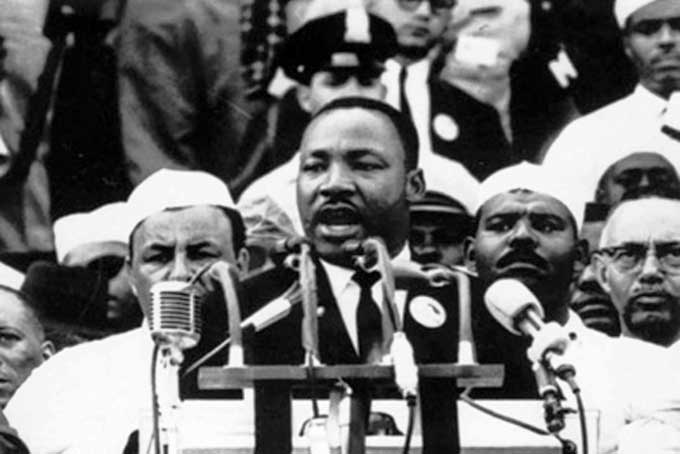
HISTORIC DREAM SPEECH—Dr. Martin Luther King Jr., head of the Southern Christian Leadership Conference, addresses marchers during his “I Have a Dream” speech at the Lincoln Memorial in Washington Aug. 28, 1963. (AP Photo)
by Freddie Allen
For New Pittsburgh Courier
WASHINGTON (NNPA)—The hoopla surrounding the observance the 50th anniversary of the March on Washington for Jobs and Freedom often ignores that lack of progress made since 1963 on tough issues such as persistent unemployment and wage disparities, according a newly-issued report.
In the report titled “The Unfinished March: An Overview,” Algernon Austin, director of the Program on Race, Ethnicity and the Economy at the Economic Policy Institute, described the “forgotten history of the march” and outlined a number of goals that remain unmet.
“Our contemporary understanding of the march and of the Civil Rights Movement, more generally, is quite limited,” said Austin, the author of the report. He said Blacks often celebrate the accomplishments of the march, such as the Civil Rights Act of 1964 and the Voting Rights Act of 1965, but ignore the intransigent economic issues, including housing, employment, and wage disparities, that were raised by the national demonstration.
“Historians have focused on the successes and they were tremendous successes when you consider how long and how deep Jim Crow was in American society,” explained Austin. “There were significant advances that deserved to be celebrated, but we probably celebrated those advances a little too much.”
The EPI report stated that: “The organizers of the March on Washington for Jobs and Freedom also demanded decent housing, adequate and integrated education, a federal jobs program for full employment, and a national minimum wage of over $13.00 an hour in today’s dollars.”
James Clingman, author of “Blackonomics,” a weekly NNPA syndicated column, said that Dr. Martin Luther King Jr., despite history’s focus on his civil rights success, also recognized the economic crisis that the Black community faced and often advocated for Black workers.
Many of the civil rights leaders and the organizers of the march understood that gaining civil rights without addressing the economic disparities would leave Blacks unable to fully enjoy those rights.
“We have no future in a society in which 6 million Black and White people are unemployed and millions more live in poverty. Nor is the goal of our civil rights revolution merely the passage of civil rights legislation,” said A. Philip Randolph, president of the Negro American Labor Council, during his speech at the march in 1963.
“Yes, we want all public accommodations open to all citizens, but those accommodations will mean little to those who cannot afford to use them.”